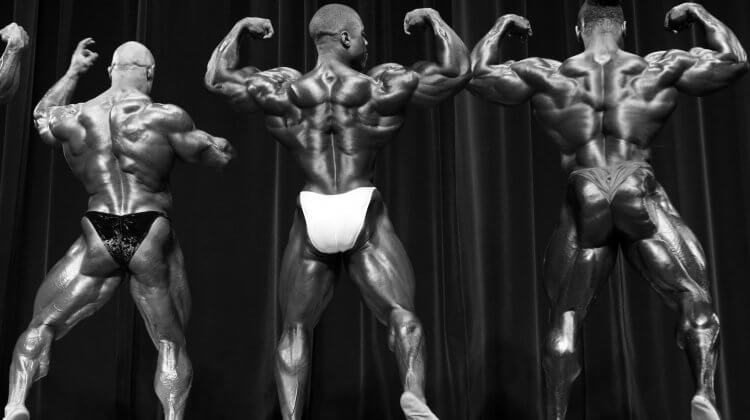
When academics write about bodybuilders they tend to imply that bodybuilders are a bit weird, or even completely fucked in the head. I started studying bodybuilding because I wanted to correct this. I wanted to talk about how bodybuilding makes sense. I wanted to talk about how bodybuilding is the logical conclusion given the current culture of the body; how it is our current Western cultural ideal of bodily control ‘on steroids’. I wanted to talk about the mentally well-adjusted bodybuilders.
But after 5 years of studying bodybuilders I have found that as much as some bodybuilders do seem to be mentally well-adjusted, and bodybuilding does make a lot of cultural sense, there is a fair bit of crazy in bodybuilding as well. I have heard bodybuilding described as a breeding ground for obsessive-compulsive behaviour. I have heard bodybuilders describe how the practices of bodybuilding made them go crazy: how the level of attention to the body and diet, the ups and downs of bulking and cutting, and the use of mirrors and steroids, resulted in body image distortion and obsessive thoughts and behaviours. I have heard stories of incredible suffering from bodybuilders.
But focussing only on the mental health risks and challenges of bodybuilding, as other academics have tended to do, only provides half the picture. The relationship between bodybuilding and mental health is much more complex than this. For many bodybuilders, bodybuilding is their way of coming home to themselves. It is meditation. It is a way of grounding themselves in their bodies. It is a way of learning who they are and where their limits lie.
Anthropologists study culture by not only living with the people they study, but living like the people they study. That is, we observe and participate in the communities that we study. When I started this research I only intended to do a quick study. I was just going to chat to bodybuilders online for a year or so, write a paper on it, boom, done, move on to the next thing. I didn’t intend on lifting anything heavier than a pen. But after hanging out with bodybuilders for a while I started going a bit native. I started to get urges to lift. Before I knew it I was counting macros and had a trainer. A colleague, a psychologist, warned me that bodybuilding was a ‘slippery slope’. I dismissed him. I was feeling great. I had always been someone who lived in their head, so it was like I was actually building myself into existence. I could feel my body in ways that I never felt before. I was aware of my body in ways I never had been before. I carried myself differently. I felt like I was really beginning to embody my body.
But then I started to lose the plot a little. The swings in my body image got wilder. One day I could think I looked great, and the next I could see myself as disgusting and so far from my goals that it was laughable. My relationship with food got a bit weird too. I stopped enjoying food. It wasn’t even really food anymore, it was just however many grams of protein, carbs and fats.
I only dipped my toe into the world of bodybuilding but I had to pull it straight back out again because I felt like if I continued my relationships with my body and food would never be the same again.
It is obvious to me from what bodybuilders have told me, and what I have experienced myself, that bodybuilding is both beneficial to mental health, and a risk to mental health. It is time to get a better picture of this complexity. We need to understand not only the psychopathology of bodybuilding, but its mental health benefits. We need to understand the how bodybuilders traverse the slippery slope that is bodybuilding. Whilst some obviously slide into psychopathology, some appear to keep their feet.
Surprisingly little attention has been given to describing and defining mentally healthy bodybuilding. The tendency in academia has been to focus on psychopathological bodybuilding. The focus needs to shift so that we not only have a more balanced view of bodybuilding, but so that we may help those bodybuilders who are suffering to find their feet again.
About the author
Mair Underwood is an anthropologist who explores body cultures. She has been living in online bodybuilding communities for the last 6 years (she has even been inspired to start lifting). Through forums and social media she has learnt about bodybuilding culture. She has been particularly focussed on enhancement drug use, and she works to increase understanding of, and support for, people who use enhancement drugs.

Leave a Reply
You must be logged in to post a comment.